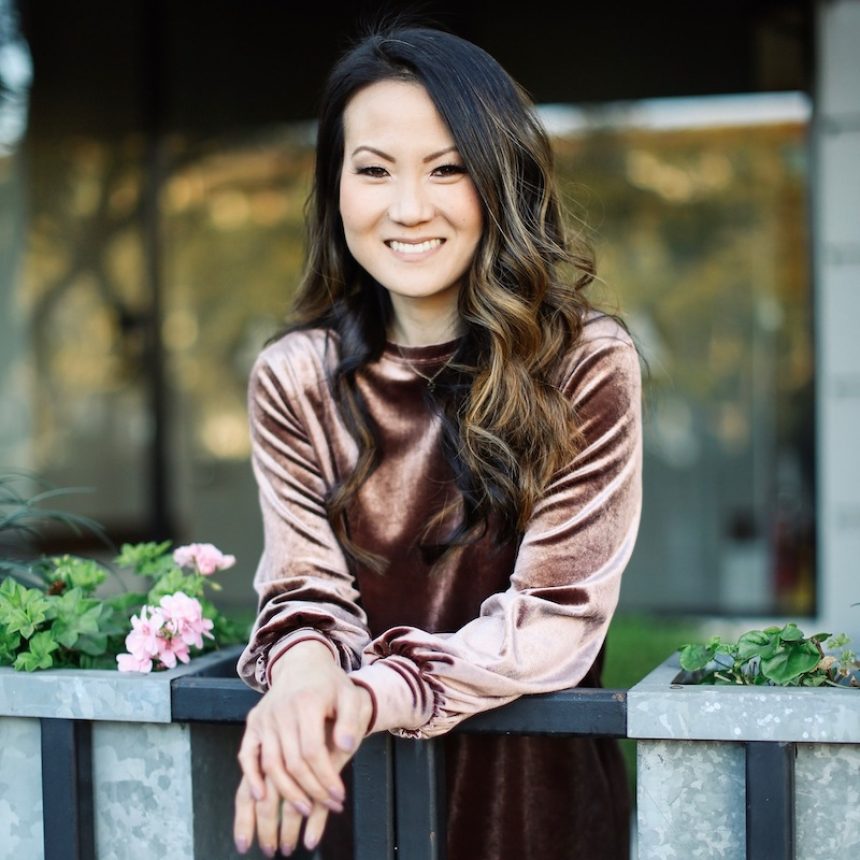You’ve probably read all about green flags to look for in a partner and in relationships, but what about green flags to identify in yourself? We’re often our own worst critics, and we’re quick to nitpick our own flaws. But chances are you’ve grown so much and are closer to all your life goals than you think. There’s way more to growth than visualizing the future you want (that doesn’t hurt, of course); it takes serious action. If you’ve been working toward the highest version of yourself—whether that’s bettering your relationships, health, career, finances, or all of the above—there are some signs you can look toward to know you’re on the right track (just keep in mind these aren’t the only signs; everyone’s journey is going to look different!). Ahead, the green flags you’re becoming the highest, most authentic, and happiest version of yourself.
10 Green Flags You’re Becoming Your Best Self
1. You set boundaries (and follow through on them)
Whether it’s saying “no” to taking on another work project when you’re already spread too thin, creating a safe word in the bedroom, or declining a family dinner to take care of your needs, you establish healthy boundaries to build a solid foundation for healthy relationships with yourself and others. You take the time to reflect on your needs in your friendships, romantic relationships, work, etc., and why each boundary you’ve introduced is important to you. Setting a few in motion at a time, keeping it simple, and being clear is how you operate. While it may be uncomfortable at first and take practice following through on your boundaries, you’re a better friend, partner, and employee when you show up for yourself. Your end goal? To feel safe, valued, and respected, no matter what context a boundary is set in.
2. You keep promises you make to yourself
We all make sacrifices for other people (remember: boundaries, ladies). But you’ve learned that if you don’t fill your own cup first, your career, relationships, and goals can pay the price. Maybe you promised yourself you would turn off Netflix instead of bingeing the next episode for the sake of quality sleep, meditate for at least 15 minutes first thing in the morning instead of stopping for coffee, and (finally) create a budget (because of said coffee addiction). No matter what you tell yourself, you keep your word and see each promise through. The best part? You’ve gained confidence and self-trust.
The secret to ensuring you make good on your promises is that you’re realistic and specific with your goals. In other words, you set yourself up for success instead of overcommitting. For example, if there’s any doubt you can carry out 15 minutes of meditation, start with five minutes instead. Then, put pen to paper, lay out a game plan, and track your progress (don’t forget to celebrate your wins!), and voila!—promises fulfilled.
3. You let go of self-limiting beliefs
We all have false preconceived thoughts, notions, and narratives we’ve told ourselves that hold us back from becoming our best selves: “I’m not pretty enough,” “I shouldn’t apply for that job because I won’t get it,” “I’ll never find the right partner.” But you’re aware you have your life experiences, fear, and imposter syndrome to thank for those unconscious biases.
So you take a step back and pinpoint your limiting beliefs by journaling about them and the possible reasons behind them (“Does this fear protect me from rejection and failure?”), questioning and challenging them (“Is this belief actually true?”), and reframing them into an inspiring and motivating idea (“I’ll never find the right partner” becomes “I haven’t found the right partner yet, but I’m going to work on putting myself and my needs first”). But you don’t stop there. You spend time exercising self-love with affirmations, like “I’m enough,” “I have a lot to offer the world,” and “I’m worthy of love” (thank you, next, false perceptions).
4. You show yourself compassion
It might sound cheesy, but we really do need to treat ourselves with the same kindness we show our best friends. Before you started working on yourself, you might have held yourself to super high standards and beat yourself up for facing setbacks. You probably did not show yourself the same compassion as you would a BFF. But now, you show yourself the same grace you show your friends (only kindness, understanding, and encouragement are welcome!). You also practice self-compassion by holding others accountable for their actions and by asking for help when you need it, like a trusted family member or co-worker.
Showing yourself compassion didn’t happen with a snap of a finger, but you’ve mastered the skill by practicing self-kindness, adopting a mindfulness-based approach, honoring your authenticity, and taking note of when negative self-talk comes into play. You’ve built resilience, made progress on your goals, and reduced stress because you know you can forgive yourself.
5. You allow yourself to feel all emotions without judgment
PSA: Even our “best selves” experience negative feelings sometimes. Becoming your best self doesn’t mean you stop feeling sad, anxious, or stressed; rather, you’re becoming your best self when you acknowledge those feelings and know how to process them. You don’t sweep negative feelings under the rug. All emotions you feel are valid: happiness, gratitude, and excitement, but also sadness, anger, anxiety, envy, and loneliness. You feel all your feels because there’s no such thing as a bad emotion.
Sometimes, naming the emotion, accepting it, and recognizing where it’s manifesting in your body is your go-to means of processing. Other times, you take to journaling, hot girl walks, talking to a friend, or therapy sessions to uncover where your feelings are stemming from (maybe your social media habit is triggering your anxiety and sadness?) and what they may be trying to communicate to you (perhaps you could use a social media break?). Bottom line: You’ll cry if you want (or need) to. After all, experiencing all of ourselves—the good, the bad, the ugly—is what makes us human and enhances our relationships, especially the one we have with ourselves.
6. You connect to your “why”
Your old self was wrapped up in how others perceived you and meeting their expectations, making you lose sight of what actually brings you fulfillment. But you’ve put pen to paper to self-reflect, work through your thoughts, and explore your feelings, and you’ve visualized your future self (what she’d be doing, where she’d be living, who she’d be with) by creating a vision board—all to get back in touch with your purpose. And you continually connect with what lights a fire under you, what leaves you wanting more, and your greatest strengths. Because when you live life with purpose, you align your lifestyle choices and behaviors with it (AKA best-self energy). At the end of the day, the purpose of being your best self is to live your purpose, so you’re actively pursuing something that brings meaning to your life, knowing your best self will follow.
7. You’re comfortable with being uncomfortable
Sure, you could hit snooze, skip every workout, and stay small at work, but stepping out of your comfort zone is a must if growth—personally, professionally, and romantically—is what you’re after. It’s not easy, but you identify the things that bring you discomfort and go after them anyway. You face them head-on, knowing you may not get instant gratification and may risk failing or getting rejected. But here’s the “best-self” part: You did it anyway because you know it’s what you really want and what aligns with your long-term goals and the future you envision.
Maybe you tried the 3-2-8 method despite never lifting weights, took yourself out on a solo dinner date when you felt self-conscious being alone, made connections at an alumni networking event, which you typically avoid, and spoke up when you disagreed with a point your boss made and suggested a different approach. You’re basically a pro at diving into new experiences and pushing your limits by this point.
8. You lean into slowing down
Thanks to a society that rewards the go-go-go grind, you used to wear your overproductive tendencies and packed social calendar like a badge of honor. As you’ve learned to break free from toxic productivity and FOMO, you’ve felt the uneasiness and “shoulds” creep in (“I should be doing laundry/answering emails/working out more”). But you’ve embraced the discomfort and reframed it as a chance to give yourself permission to rest and engage in self-care (whatever that looks like for you) and to challenge the idea that your productivity is a direct reflection of your worth. You schedule the time to unplug, be still, and relax, and you treat your breaks as mandatory appointments, just as you would a health check-up or work meeting. Not only has it paid off for your mental and physical health but also your creativity, productivity, and mood. Because you allow yourself ample time to recharge, you show up more fully in other areas of your life.
9. You don’t over-romanticize the past
During the hardest times when we have a long road of self-discovery ahead of us, it can be easy to romanticize the past. At your lowest, you might have scrolled through old photos and wished you could rewind time and live in the past instead of being grateful for the memories and focusing on the present. Now that you’ve grown, though, you know that there’s no point in dwelling on what you’ve lost. You may grieve past versions of yourself or times in your life, but you accept that while those times were good, they don’t take away from how beautiful things are now. Instead of wishing you could go back in time (or leap forward), you let yourself focus on the now.
10. You trust your future self
While you may still be hard on yourself every now and then, you now have confidence that your future self will be able to overcome hurdles and take things in stride. At the beginning of your personal growth journey, you likely faced mental hang-ups that were getting in the way of realizing your fullest potential. Maybe you were so focused on the end goal that you didn’t acknowledge or enjoy the journey and what you learned along the way, got stuck in ruts thanks to the comparison game, or second-guessed your purpose a few too many times.
But fast forward to today, you love and trust your future self enough that you know she will approach every setback with a growth mindset. You recognize your blind spots, weaknesses, and areas needing improvement, but that self-awareness allows you to identify where you are now so you can get to where you truly want to be. You still want to grow every day, and you take action to do so, but you’re not fixated on it, and you don’t overthink it. You know you’re really becoming your best self when becoming your best self is no longer the only thing on your mind.
MEET THE AUTHOR
Katherine Chang, Wellness Staff Writer
Katherine Chang is The Everygirl’s Wellness Staff Writer with over five years of experience in the health and wellness space. She navigates the latest wellness topics and trends through expert interviews and studies, and she’s always first in line to try them firsthand.







